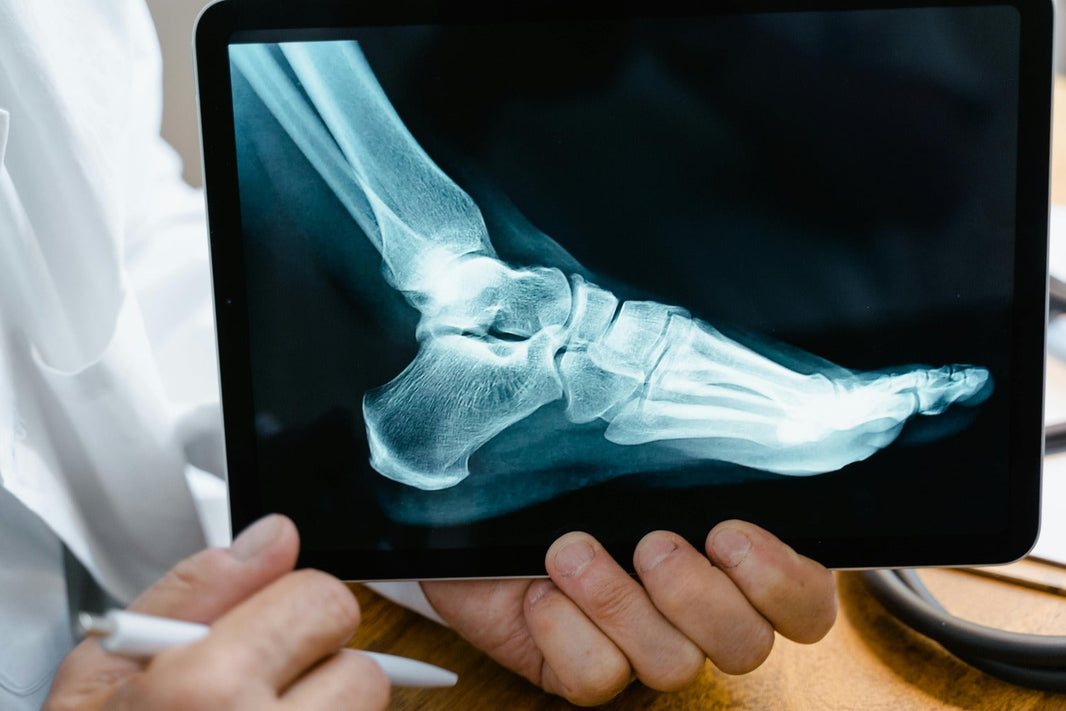Osteoarthritis (OA), a degenerative joint condition, has traditionally been viewed as a "wear and tear" disease. However, recent scientific breakthroughs reveal a fascinating connection between gut health and joint health. The gut microbiome—home to trillions of microorganisms—plays a pivotal role in regulating inflammation, nutrient absorption, and overall health, all of which influence osteoarthritis development and progression.
If you’re wondering how your gut health could be impacting your joint pain, keep reading to discover the nutrition connection and ways to support both your gut and joints naturally.
The Gut-Osteoarthritis Link: What Science Says

Emerging studies suggest that gut dysbiosis—an imbalance of gut bacteria—can contribute to chronic inflammation, a key factor in osteoarthritis progression. When the gut lining is compromised (a condition often referred to as "leaky gut"), harmful substances like bacterial toxins can enter the bloodstream, triggering systemic inflammation. This inflammatory response can exacerbate joint degradation and pain in osteoarthritis patients.
A 2020 review published in Nature Reviews Rheumatology highlights the role of gut microbiota in modulating systemic inflammation and influencing joint health. Researchers have found that certain gut bacteria produce short-chain fatty acids (SCFAs), such as butyrate, which help reduce inflammation and support cartilage health.
Nutrition's Role in Supporting Gut and Joint Health
The good news? Your diet has the power to nourish your gut and potentially alleviate osteoarthritis symptoms. Here's how specific nutrients and food groups can make a difference:
1. Fiber for a Healthy Microbiome
● Why it matters: Fiber-rich foods fuel beneficial gut bacteria, promoting the production of anti-inflammatory SCFAs.
● Foods to include: Oats, beans, lentils, broccoli, berries and flax seeds.
2. Probiotics to Restore Balance
● Why it matters: Probiotic-rich foods introduce beneficial bacteria to the gut, helping to restore balance and reduce inflammation.
● Foods to include: Yogurt with live cultures, kefir, sauerkraut, kimchi and miso.
3. Omega-3 Fatty Acids to Fight Inflammation
● Why it matters: Omega-3s, known for their anti-inflammatory properties, can help soothe inflammation associated with both gut dysbiosis and osteoarthritis.
● Foods to include: Salmon, walnuts, chia seeds and flaxseeds.
4. Polyphenols for Gut and Joint Health
● Why it matters: Polyphenols act as antioxidants and prebiotic reducing oxidative stress and supporting a diverse microbiome.
● Foods to include: Green tea, dark chocolate, berries and olive oil.
5. Vitamin D for Joint Integrity
● Why it matters: Vitamin D supports gut barrier function and helps regulate the immune system, reducing inflammation in the joints.
● Foods to include: Fortified dairy products, fatty fish, egg yolks and sunlight exposure.
Practical Tips for Improving Gut and Osteoarthritis
Improving gut health is a journey, not a quick fix. Here are some simple yet effective steps to consider:
● Diversify Your Diet: Include a wide variety of plant-based foods to nourish different strains of beneficial gut bacteria.
● Limit Processed Foods: Highly processed foods and added sugars can disrupt the gut microbiome and promote inflammation.
● Stay Hydrated: Adequate water intake supports digestion and gut lining integrity.
● Consider Prebiotics: Foods like garlic, onions, and asparagus provide prebiotic fibers that feed healthy gut bacteria.
● Mind Stress: Chronic stress can negatively impact gut health and inflammation levels. Practices like yoga or mindfulness can help.
Final Thoughts
The connection between gut health and osteoarthritis underscores the importance of a holistic approach to managing joint pain. By prioritizing a gut-friendly, nutrient-dense diet, you can reduce inflammation, improve joint health, and potentially slow the progression of osteoarthritis.
Always consult with a healthcare professional or registered dietitian before making significant dietary changes, especially if you have specific medical conditions.
References
- Zhentian Wei., et al. Association Between Gut Microbiota and Osteoarthritis: A Review of Evidence for Potential Mechanisms and Therapeutics, Frontiers in Cellular and Infection Microbiology, 2022.
- Li R, Boer CG, Oei L, Medina-Gomez C. The Gut Microbiome: a New Frontier in Musculoskeletal Research, Curr Osteoporos Rep, 2021.








